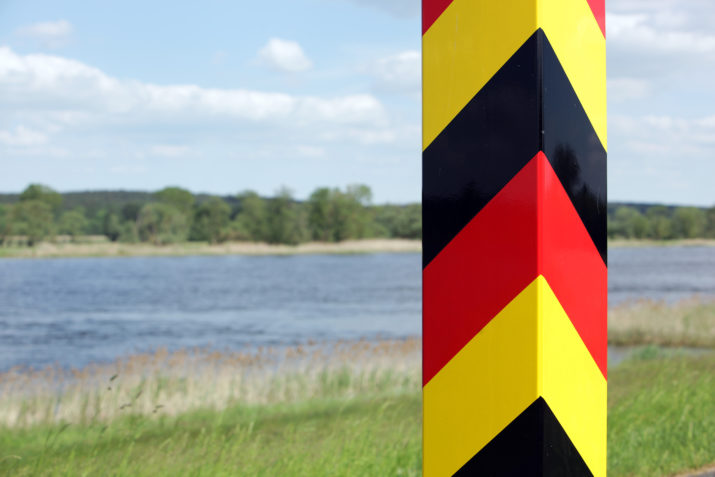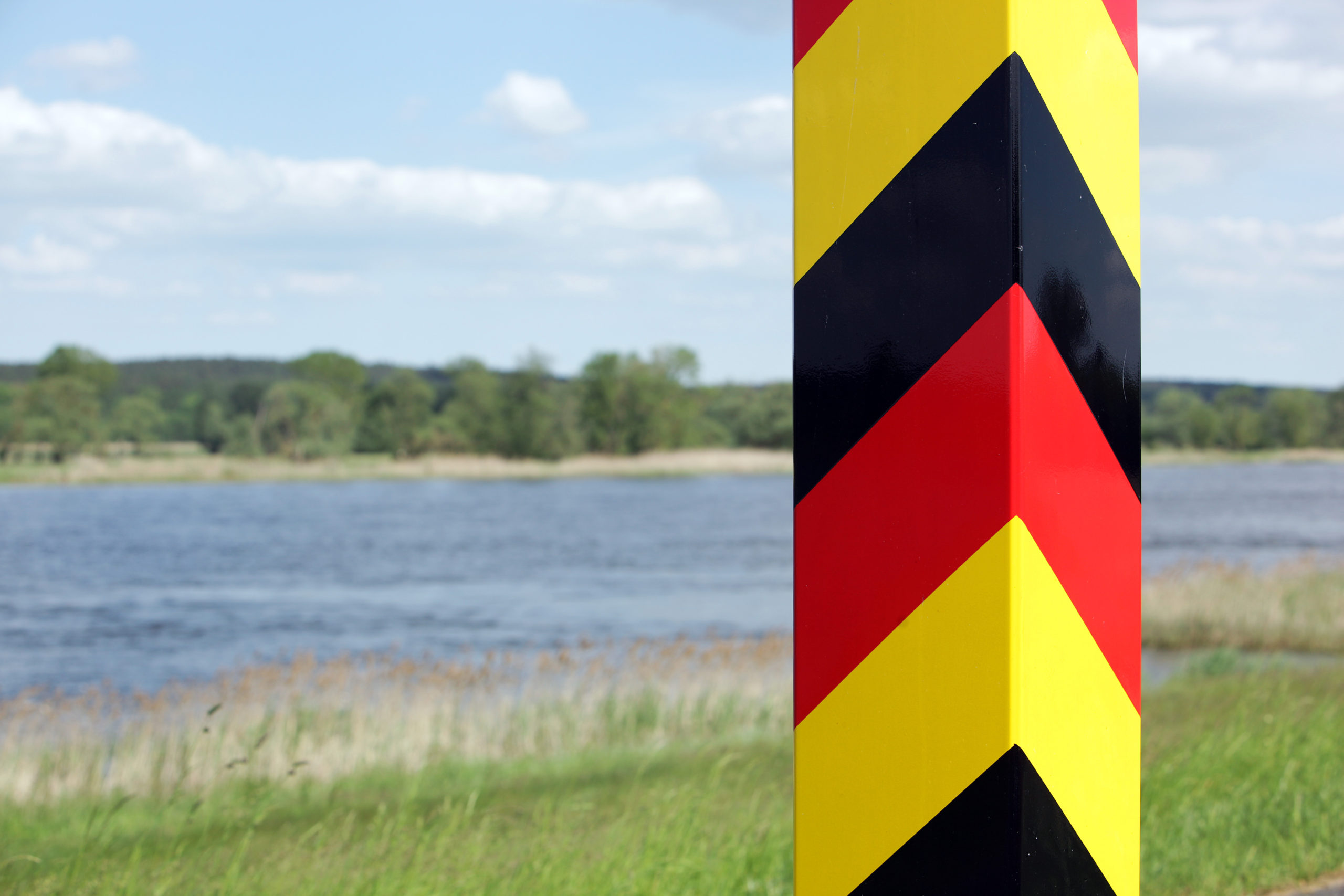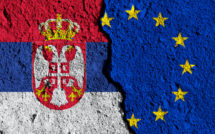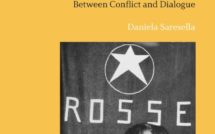
Europe at its Borders, Europe at its Heart: Critical European Studies at the Viadrina

This is part of our Campus Spotlight on Europa-Universität Viadrina.
When it was first founded in 1506 on the banks of the river Oder under the name “Universitas Francofurtensis,” what is now the Viadrina became the first public university of the state (then principality) of Brandenburg. In the following centuries, the school would develop an important role in training civil servants, jurists, diplomats, theologians, and physicians. Due to its geographical location, early on the university became a meeting ground for scholars and students from both the Eastern and the Western bank of the river Oder, which today draws the limit between Germany and Poland. During the Age of Enlightenment, the Viadrina spread the values of humanism and pioneering scientific knowledge, positioning itself as a reference and as the eastern outpost for Western European progressive teachings. More than 55,000 people had studied there by 1811, when, due to the opening of a major university in Berlin the year before (which would become the Humboldt University), the old Viadrina was closed, and most of the library’s content and some of the faculty transferred to the University of Breslau (Wrocław).
When the new Viadrina was founded as a European University in 1991, shortly after the fall of the Berlin wall, the location in the city of Frankfurt Oder at the Polish-German border became once again relevant. Its position at the intersection of Western and Eastern Europe translated into a clear mandate: building bridges of knowledge and cooperation with its Polish neighbors, and with Central and Eastern Europe as a whole. One key instrument in that project was the Collegium Polonicum, a cross-border cooperation with the Adam Mickiewicz University in Poznań, which is located across the bridge on the Polish side of the border and opened its doors in 1998. In this context, the new Viadrina was able to attract a good number of students from Poland, who valued the chance of enjoying higher education in a good networked Western European university and even though they were not EU citizens, as Poland would become a member state only in 2004.
Back then, the border that separates Frankfurt Oder from Słubice, on the Polish side, was also one of the external borders of the European Union. The intense dynamics of an active border was a beneficial factor both for the Viadrina and for the city as a whole, and the new university benefited from and also contributed to this dynamism. Therefore, and paradoxically enough, the EU enlargement to several Eastern European countries in 2004 posed a challenge for both the city and the university. The city had already seen a decrease in population since the unification of Germany–when there was a huge labor migration to the West of the country–and this tendency continued after Poland entered the EU. Frankfurt Oder underwent a process of further economic shrinkage and decrease in population (according to official sources, Frankfurt Oder went from around 87,000 inhabitants in 1989 to 57,000 in the present)[1].
For the Viadrina University, the expansion of the EU to the East brought the need to sharpen its profile and to retain its geographic and academic focus in a far more competitive context. If until then the German-Polish university had offered the only possibility for students from Poland to study in Western Europe, they now had the whole continent open to them. The EU enlargement also meant that the “European” mandate of the Viadrina would need to broaden its scope and, while keeping the focus on Central and Eastern Europe, include also the rest of the continent as well as the challenges of their entanglements with an increasingly globalized world.
From the borders of Europe to its very heart
A similar displacement, from the peripheries towards the center, lies at the origin of the Viadrina Institute for European Studies (IFES). While our forerunner, the Frankfurt Institute for Transformation Studies, had mainly focused on the processes of political and institutional transformation in Eastern and Central Europe, the work at the IFES is directed towards Europe as a whole in its multiple social and political complexities and intertwining. This shift reflects the changing conditions within Europe, as the phase of fundamental and simultaneous transformations of political, legal and economic systems after the post-soviet era seemed to be over, and new challenges emerged that concern European integration and its multiple global imbrications.
The IFES retains the original regional focus, but this interest is now aligned with the requirements of contemporary European Studies. In Central and Eastern Europe as well as in Southeastern Europe the dominating theme is no longer the transition to democracy but rather the different varieties of a core concept of democracy and market economy. Many countries, on the other hand, face social changes that can serve as blueprints for the rest of Europe. Such impetus has to be brought into a productive dialogue with ideas from Western and Southeastern Europe and be integrated into research projects that tackle these processes across disciplines and geographies. Leaving aside the transformation concept, which often implies a teleological understanding of the recent historical developments, research at the IFES aims to highlight the openness and multi-directionality of past and present processes of social, political, cultural, and economic change in Europe.
This broadening of perspective in order to account for the complex European social, political, and cultural figurations demands a broader disciplinary scope. If the previously mentioned processes were predominantly the object of the fields of political sciences or international relations, now more attention should be given to the cultural sphere, as one where the meaning and ascribed values of and about Europe are negotiated. The IFES reunites researchers from the fields of political science, sociology, history, social and cultural anthropology, gender studies, as well as literary and cultural studies.
The research topics addressed at the institute range from institutional aspects of the European Union to those involving social agents, practices, discourses, and meanings in, from, and about Europe in the present and in the past. Central research projects developed collectively tackle the inquiry about periphery-building in the European context, as well as the ambivalences of Europeanization. Peripheries are understood as one end of the process in a spatially connoted social constellation that is characterized by exchange, dependency, and difference. This inquiry looks at the emergence of such constellations in Central Eastern and Southern Europe with a particular interest in the construction and subversion of peripheral subjects. One aspect is a change of perspective: Scholars at the IFES extend perspectives that are usually applied to the postcolonial global South to the intra-European context. Focusing on ambivalences allows for the discussion and incremental development of a new, comprehensive concept of Europeanization. While current understandings of “Europeanization” are still dominated by teleological and linear thinking, the goal here is to reframe it so as to better incorporate its historic, institutional, and symbolic connotations. Ambivalences—understood as inherently contradictory consequences of both intentional and emergent processes—form a crucial aspect of modernization research. However, there has been no systematic reflection on the (concomitant) inherent ambivalences of Europeanization. Our approach highlights the simultaneity of ambivalences, considering them triggers for historically contingent processes of Europeanization since the late eighteenth century. The interest lies therefore both on historic and present processes of Europeanization.
Further research objects at IFES include the problems of democracy and legitimacy, discourse research, and the role of national parliaments in the European Union; the conflicts between religion and politics in contemporary Europe, including transnational resistance to gender equality as an example of illiberal responses to liberally understood policies; radical right in liberal democracies; immigration, nationalism and the politics of citizenship; protest, participation, democracy and resilience, in post-socialist Europe, especially in Ukraine; and the policy analysis and foreign politics of the European Union and its member states, including policy transfers and norm circulation. Beyond such rather “classical” objects of interest in European studies, individual projects engage with topics such as the study of historical time as a hegemonic category of self-location in European modernism; the relation of politics and emotions; the relationship between gender, sexuality, health care and whiteness in the processes of Europeanization from a post-colonial and (post) imperial perspective; the role of NGOs and social movements in disputed gender orders in Eastern Central Europe, and the constructions of alterity in and through the EU border regime. Borders are considered in our days as key scenarios where struggles over belonging, differences, and entitlements to mobility are being disputed. In cooperation with the Viadrina Center B/ORDERS IN MOTION within our university, where borders and orders are studied in their dynamic material and symbolic interrelations, the IFES aims to contribute an understanding of Europe from the prism of border making. If borders and orders are inseparably intertwined and the result of always changing social practice and production of meaning, the current struggles at the borders of Europe may as well reveal crucial information about core conflicts in the continent.
Throughout all the diverse focus areas and research topics at the IFES, the overarching question concerns the objective of working with an analytic notion of “critique.” We aim at providing impulses for the reflection about Europe through a critical perspective within the field of European Studies. That means, as a first step, to inquire about the very meaning of “critique” and the diverse methodological and theoretical-conceptual paths opened by this notion when it comes to research about Europe.
The (emerging) field of critical European studies
Over the last years European Studies have both grown in volume and in variety of perspectives. This process is due in part to the deepening of the process of European integration and EU enlargement, with the concomitant increasing differentiation and complexity within the Union, although it can also have to do with the more general tendency towards “object” (instead of disciplinary) orientations in higher education.
This emerging research field has several facets.[2] On one side, there are those studies that focus on Europe as an assumed cultural and social space and as another case of “area studies;” this is mostly a multi-disciplinary perspective with a frequent emphasis from History and the Humanities. Research that focuses on the EU instead, has been mostly permeated by the Social Sciences and has the European Union, rather than “Europe” at the center of interest; here research aims at following the process of European integration since the end of World War II both scholarly and politically. These researchers distinguish between those affirmative analyses of European integration, which aim at strengthening that process through the production of knowledge, and what could be considered as a third stream in the field of European studies and labeled as “critical” European research: here the focus is set on European social orders and power relations, as well as on inquiring about deficits and conflicts in the European project.
At the IFES, it is this approach that we aim at deepening and to which we aim to contribute. But what does a “critical” approach mean? Critique has a strong tradition in the Western tradition and implies a broad variety of scholarly methods and theoretical positions. If taken as a perspective for epistemological and philosophical inquiry, critique can be seen, among other things, as a way of examination and negative judgment of the world, as a method of systematic thought and hermeneutics, or as an approach that engages the reflection on scholars’ conditions of production and positionality within their own research.
At the IFES, we aim to discuss conceptual-theoretical approaches to critique in European studies and how they can be productively integrated into our empirical research. While keeping on with the individual and collective specific research projects, the goal is to explore and develop theoretical and conceptual frames for critical perspectives on Europe. We want to engage more profoundly with and position ourselves within the various and rich existing traditions of critical thought. Central philosophers and thinkers of modernity –from Immanuel Kant to Karl Marx, including the legacy of the Frankfurt School (also known as Critical School), and contemporary authors such as Luc Boltanski, Michel Foucault, Jürgen Habermas or Judith Butler, to name just a few–offer from their own perspectives a rich archive from which to draw. Post-colonial and de-colonial theories, as well as gender and queer perspectives, bring additional critical approaches that explicitly engage with the need to include a reflection about our own European positionality into the picture.
The tradition of the Enlightenment that the “old” Viadrina disseminated centuries ago was led by the impulse towards intellectual emancipation and independent thinking that nourished the very notion of critique. At the same time, the values of the Enlightenment have since then been the target of wide scholarly deconstruction since they implied the assumption of a European (colonial) centered white and male subject of knowledge and domination. Hence, any engagement with the critical gesture must necessarily consider the historical and political conditions in which it takes place. Being both at the periphery and at the core of Europe, and at the crossroads of multiple intellectual, cultural, and political movements across past centuries, our location on the banks of the Oder lends us a fertile soil for reflecting on those questions.
Estela Schindel is a lecturer and researcher and the academic coordinator of the Viadrina Institute for European Studies at the European University Viadrina in Frankfurt Oder. Her research interests include theories and representations of violence, (im)mobility regimes, border and borderlands studies, and biopolitics. Her current research engages with the entanglements of violence, nature, and technology in the EU border regime.
Timm Beichelt is professor for European Studies and the director of the Master of European Studies of the Viadrina Institute for European Studies at the Viadrina University in Frankfurt Oder. His main research areas are the politics of the European Union, democracy and transformation processes in the post-socialist countries, and the relation between culture and politics.
More information about the IFES can be found here.
[1] See Beitrag zur Statistik, Landesbetrieb für Datenverarbeitung und Statistik des Landes Brandenburg, Potsdam 2006, (www.statistik-berlin-brandenburg.de/Publikationen/stat_berichte/2015/SB_A01-99-09_2006u00_BB.pdf) and other data published in: www.statistik-berlin-brandenburg.de/datenbank/inhalt-datenbank.asp (in German).
[2] Beichelt, Timm and Christina Ücker,“Europa-Studien zwischen Affirmation und EU-Kritik,“ Integration, vol. 35 (2012), no. 2, 136–148.
Published on June 3, 2020.




